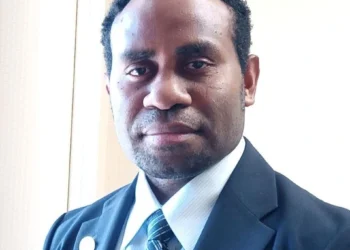Former U.S. President Donald Trump’s controversial executive order targeting birthright citizenship has raised significant concerns among H-1B, F-1, and L-1 visa holders with children born in the United States. This policy, which aims to end the automatic granting of citizenship to individuals born on U.S. soil, has implications for nonimmigrant families navigating U.S. immigration laws.
Key FAQs About the Birthright Citizenship Order
1. What Does the Executive Order State?
The order seeks to reinterpret the 14th Amendment, which grants citizenship to all individuals born in the U.S., excluding specific exceptions such as children of diplomats. Trump’s order challenges this interpretation, arguing that nonimmigrant families on temporary visas should not automatically confer U.S. citizenship to their children.
2. Who Is Affected by This Order?
Families of individuals on H-1B, F-1, and L-1 visas, among others, could be directly impacted. Children born to these visa holders in the U.S. may no longer qualify for automatic citizenship if the order withstands legal challenges.
3. What Are the Legal Challenges to the Order?
The executive order faces significant legal opposition, as the 14th Amendment explicitly guarantees citizenship to all persons born in the U.S. Critics argue that such a fundamental change cannot be made via executive action and would require a constitutional amendment.
Concerns for Nonimmigrant Families
Impact on Children’s Status
If enforced, the order could render children born to H-1B, F-1, and L-1 families stateless, particularly if their parents’ home country does not recognize citizenship through descent.
Access to Benefits
Without U.S. citizenship, these children could face restrictions on accessing education, healthcare, and other rights typically afforded to citizens.
Increased Legal Uncertainty
Nonimmigrant families may need to navigate complex legal pathways to secure residency or citizenship for their children, adding to the already challenging U.S. immigration process.
Yusuf Boz’s Perspective
Immigration expert Yusuf Boz commented on the potential ramifications of the order:
“This policy not only contradicts the clear language of the 14th Amendment but also introduces unnecessary complications for families contributing significantly to the U.S. economy and academic institutions.”
Boz emphasized the economic and social contributions of H-1B, F-1, and L-1 families:
“These individuals play a critical role in advancing innovation and education. Punishing their children by denying citizenship undermines the values that have historically made the U.S. a global leader.”
Advice for Affected Families
1.Stay Updated on Legal Developments:
Monitor the progress of legal challenges to the executive order.
2.Consult Immigration Attorneys:
Seek expert advice to understand potential impacts on your family and explore alternative legal pathways if needed.
3.Document Your Status:
Ensure all visa and residency documentation is up-to-date to minimize risks during policy transitions.
Trump’s birthright citizenship order has introduced significant uncertainty for H-1B, F-1, and L-1 families. While legal challenges are expected to delay or overturn the policy, affected families must remain vigilant and proactive. By staying informed and consulting experts, they can better navigate the evolving U.S. immigration landscape and protect their children’s future.














